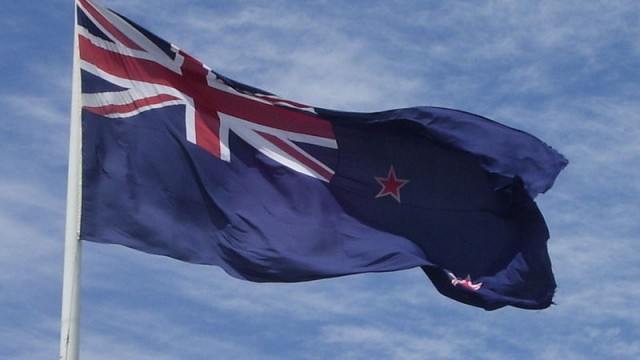New Zealand may soon become the first nation in the world to legally allow the sale of recreational drugs other than tobacco, alcohol and caffeine. Contrary to popular belief, the Netherlands still prohibits marijuana sales, but simply tolerates them on a small scale in designated outlets. The law passed in the New Zealand parliament this summer, then, sets an interesting precedent.
A very important caveat is that those drugs which have already been banned will not become legal under the new measure. Major recreational drugs, such as marijuana, cocaine, and opium derivatives, are already restricted by international treaties to which New Zealand is a signatory. Unfortunately, then, the island nation is most likely unable to legalize them. The new law deals instead with the great variety of newer and lesser-known synthetic substances, sometimes known as “designer drugs.”
These drugs are also often known as “research chemicals,” because they were generally developed as part of some sort of research. However, little to no formal testing of their effects on humans has been done. Such drugs are sold for recreational use, but often not explicitly so; some are even labeled “not for human consumption” to avoid legal difficulties. Their effects are not entirely unknown, as anecdotal information including recommended dosages for them is available online. Formal study of their safety, though, is still lacking, and occasional deaths are reported from apparent accidental overdoses.
The belief that some drugs are likely to drive otherwise peaceful users to commit acts of violence has been repeatedly debunked,1 including with regard to crack and methamphetamine. 2 3 4 It seems to persist, though, with regard to some new synthetics. Recently, extreme cases of violence, including cannibalism and self-mutilation, are often blamed in sensational media reports on so-called “bath salts,” similarly to the yellow journalism of the early 1900s which made reference to similar horrors done by “negro cocaine fiends.”
“Bath salts” is a term used for a particular subset of new synthetic substances similar in their effects to cocaine and amphetamines. They are not chemically similar to actual salts used in bathing, although some sellers have labeled them as such in order to avoid legal problems. These include methylenedioxypyrovalerone (MPDV), which was recently banned and placed in Schedule I in Canada. One of the most popular synthetic drugs, mephedrone, was prohibited in the UK in 2010, but subsequently increased in popularity among club-goers. Contrary to what the popular media image might lead one to expect, no increase in rates of cannibalism or murder among users has been noted.
The legal response in the US to these drugs has been similarly extreme. After the first-ever recorded case of death caused by alphamethyltryptamine (AMT) in the US, for example, the Drug Enforcement Administration enacted an emergency ban on the drug. President Obama signed a law in 2012 prohibiting 31 synthetic compounds including several “bath salts.” These drugs, too, had been subject to an emergency ban by the DEA. A study from 2012, though, estimated that the use of bath salts was still quite rare. Only about 0.8% of young adults had used the synthetic stimulants within the past year, compared to 19.9% of the same sample who had used any illicit drug.
Attempts at dealing with research chemicals through law enforcement have been particularly futile. Not only can law enforcement not effectively suppress the trade in these substances, but new drugs are developed so quickly that new bans cannot keep up. One UN report estimated 166 new psychoactive substances in 2009, a number which increased to 251 in 2012. Only 234 substances, by contrast, are under what is referred to with unintentional irony as “international control.”
The New Zealand law establishes a more credible form of drug control. A new Psychoactive Substances Regulatory Authority will be charged with implementing various regulations on the new substances. In order to be approved, each substance must be formally tested and shown to pose “no more than a low risk of harm to people using them.” As Maia Szalavitz points out, over 50 products have already received interim approval. Anyone with a retail or wholesale license will be allowed to sell the drugs, although this does not include some outlets, such as convenience stores, where the substances have been sold in the past. No one under 18 will be permitted to purchase them, and advertising will be prohibited except at the point of sale.
Efforts to suppress designer drugs are clearly failing, unless we consider the spread of even less well-understood drugs a sign of success. The market for such substances, while relatively limited, is highly unlikely to ever disappear. While many lawmakers elsewhere continue to cling to prohibition, New Zealand is moving toward a more responsible approach.
Notes
1. Arthur Benavie, Drugs: America’s Holy War (New York and London: Routledge, 2007), 36, 105.
2. Jacob Sullum, Saying Yes: In Defense of Drug Use (New York: Penguin Group Inc., 2003), 195-197, 209-210.
3. Michael S. Gazzaniga, “The Opium of the People; Crack in Perspective,” in Evans, Rod L., and Irwin M. Berent, eds., Drug Legalization: For and Against (La Salle, Illinois: Open Court Publishing Company, 1992), 232.
4. Carl Hart, High Price: A Neuroscientist’s Journey of Self-Discovery That Challenges Everything You Know About Drugs and Society (New York: Harper Collins, 2013), 109-111, 187, 190.
Image credit to wikimedia.org.

